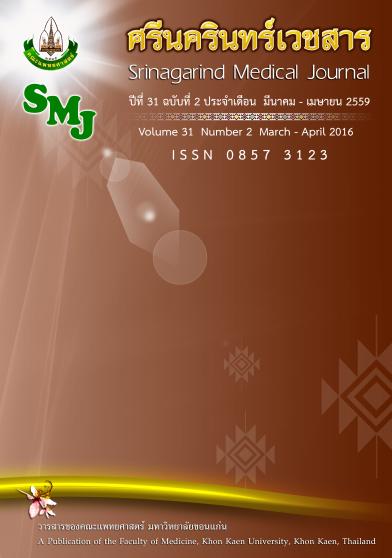The Development of Breast Phantom for Clinical Practice in Mammography
Abstract
Background and Objective: Mammography is an effective method for breast cancer screening. Radiological technologists (RTs) play a major role in breast imaging procedures. To obtain a high quality mammography image, RTs require instruction and practice in patient positioning to be a clinical expert. The purpose of this study was to produce a breast phantom to be instructional media used in practicing mammography positioning.
Materials and Methods: Breast tissue was produced by a high quality polymer gel formulation, which was a compound of 5 grams of polyvinyl alcohol solution (10 %w/w), 40 grams of cassava starch and 30 grams of borax solution (5%w/w). The phantom’s body was developed using a natural latex rubber and a Dunlop process for the production of foam rubber. The phantom’s skin was coated with a latex compound similar to that used in rubber gloves. These produced samples were measured the mechanical properties (tensile strength and tear strength). The instructional breast phantom was evaluated by thirty users.
Results: The breast phantom proportions were bust, waist and hip of 38, 29 and 36 inches, respectively. The breasts of the body phantom were mounted with three simulated lesions on the right side. The tensile strength of the materials used was 1.44 x 106 kN/m2 and the tear strength was 5.43 kN/m. The users responses were at good level (Mean = 4.16, SD = 0.64).
Conclusion: The developed breast phantom can be successfully used to enable practice in mammography positioning at good level of user responses.




